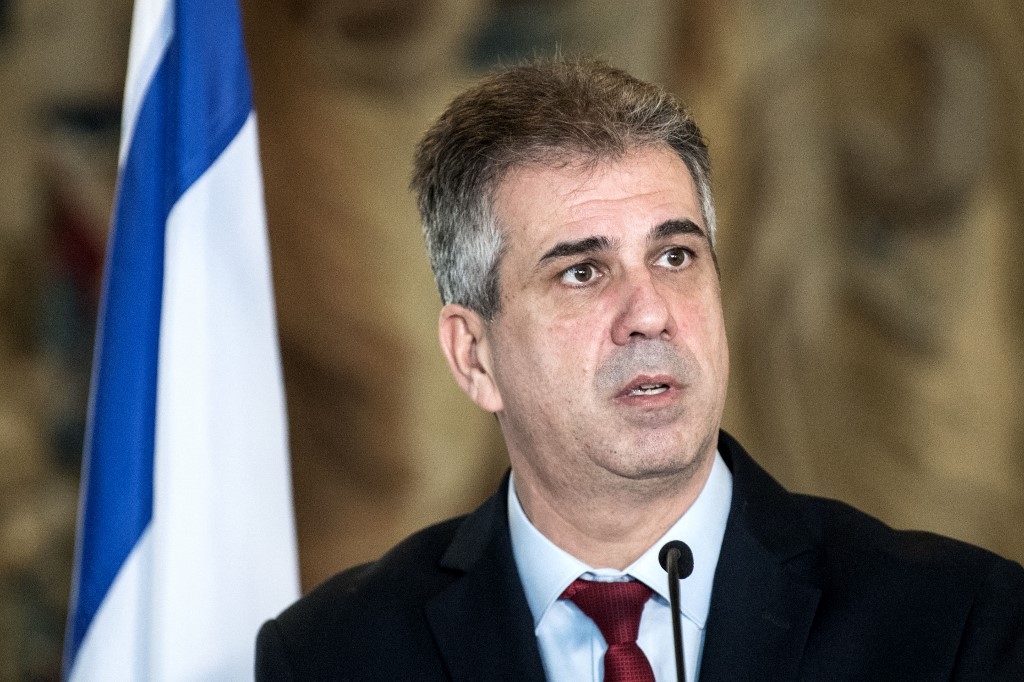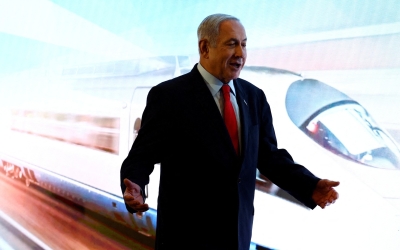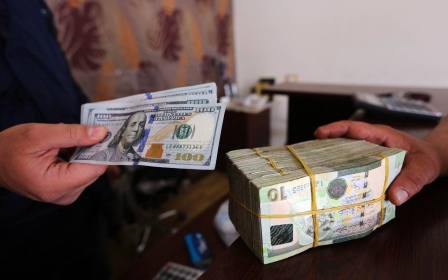Israel and Libya's foreign ministers meet for first time in history

The Israeli and Libyan foreign ministers met in Italy last week despite not having formal relations, Israel said on Sunday, saying they discussed possible cooperation.
Since 2020 Israel has moved to normalise ties with the United Arab Emirates, Bahrain, Morocco and Sudan through the so-called "Abraham accords" brokered by the United States.
"I spoke with the foreign minister about the great potential for the two countries from their relations," Israeli Foreign Minister Eli Cohen said in a statement.
Later on Sunday, the head of Libya's Government of National Unity (GNU), Abdulhamid al-Dbeibah, suspended the foreign minister involved, Najla Mangoush, and referred her to investigation, according to Reuters.
Libya's Foreign Ministry said Mangoush had rejected a meeting with representatives of Israel and that what had occurred was "an unprepared, casual encounter during a meeting at Italy's Foreign Affairs Ministry".
The Libyan ministry's statement said the interaction did not include "any discussions, agreements or consultations" and added the ministry "renews its complete and absolute rejection of normalisation" with Israel.
Libya does not recognise Israel and supports the establishment of a Palestinian state.
Complications
Any Israeli effort to strengthen ties with Libya could be complicated by Libya's conflict and its bitter internal divisions over control of government and the legitimacy of any moves made by the Tripoli administration.
Libya's GNU was installed in early 2021 through a UN-backed peace process but its legitimacy has been challenged since early 2022 by the eastern-based parliament after a failed attempt to hold an election.
Previous foreign policy moves by the GNU, including agreements it has reached with Turkey, have been rejected by the parliament and subjected to legal challenges.
Repeated international efforts, driven largely by the United Nations, have failed to result in a unified government, though some headway was made when the Libyan central bank earlier this month said it was re-unifying.
The meeting was facilitated by Italian Foreign Minister Antonio Tajani, Israel's foreign ministry said, adding they had discussed possible cooperation and Israeli aid in humanitarian issues, agriculture and water management.
Cohen said he had spoken to Mangoush about the importance of preserving Jewish heritage in Libya.
Israel's regional relations
Israel's Prime Minister Benjamin Netanyahu has been working to improve Israel’s relations with Middle Eastern, African and Asian countries.
Particular focus has been on Saudi Arabia, especially after relations with the United Arab Emirates, Bahrain, Morocco and Sudan were normalised under the Abraham Accords.
Last month, Israel announced it intended to build a rail expansion connecting outlying towns and cities to Tel Aviv, and potentially linking the country to Saudi Arabia.
Netanyahu said that the One Israel Project would be designed to reduce the time it takes to reach government and business centres of the country to less than two hours.
"I would like to add that in the future we will also be able to transport cargo by rail from Eilat to our Mediterranean, and will also be able to link Israel by train to Saudi Arabia and the Arabian peninsula," he said during televised remarks.
The high-speed north-south rail link would be ready in the next 10 years, according to Israel's finance ministry.
The announcement of the rail project, which will cost 100 billion shekels ($27bn), was made just days after US officials travelled to Saudi Arabia to advance talks to normalise relations between Israel and Riyadh.
A senior Israeli lawmaker said that the normalisation did not appear to be imminent.
"I think it's too early to talk about a deal being in the works," Yuli Edelstein, head of the Israeli parliament's foreign affairs and defence committee, told Israel's Army Radio.
Middle East Eye propose une couverture et une analyse indépendantes et incomparables du Moyen-Orient, de l’Afrique du Nord et d’autres régions du monde. Pour en savoir plus sur la reprise de ce contenu et les frais qui s’appliquent, veuillez remplir ce formulaire [en anglais]. Pour en savoir plus sur MEE, cliquez ici [en anglais].





